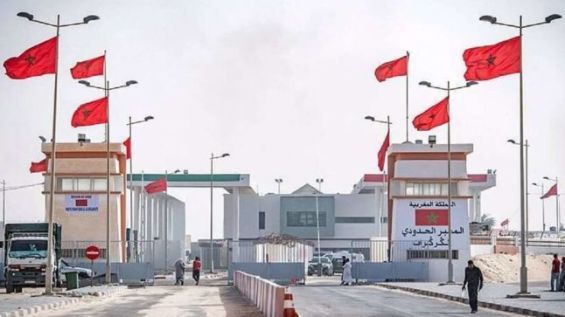On July 30, 2006, in his Throne Speech, King Mohammed VI announced Morocco's decision to propose an autonomy plan for the Sahara. This proposal, framed within the Kingdom’s sovereignty and territorial integrity, was presented as a solution to the decades-long Western Sahara conflict. The King also emphasized directing Morocco’s efforts toward comprehensive development and building the Maghreb Union as a matter of wisdom and future necessity.
On April 11, 2007, Morocco’s Permanent Representative to the United Nations, Mustapha Sahel, delivered the text of the Moroccan initiative to Secretary-General Ban Ki-moon in New York. Two days later, in his report (S/2007/202), the Secretary-General confirmed receipt of the initiative and recommended that the Security Council urge Morocco and the Polisario Front to enter into direct, unconditional negotiations.
The Moroccan initiative continues to be a key focus in international forums, especially at the UN Security Council. Morocco has consistently maintained that autonomy is the only framework it will accept for negotiations with the Polisario Front.
Disagreement among major powers and reception of Moroccan efforts
In late April 2007, the UN Security Council discussed the Sahara conflict, with the Polisario Front presenting a parallel proposal based on a referendum and «self-determination». However, this proposal remained marginal and was eventually disregarded.
South Africa’s representative accused France and the United States of promoting the Moroccan proposal to the detriment of the Polisario proposal.
UN Resolution 1754, adopted unanimously, noted the Moroccan proposal and welcomed Morocco’s serious and credible efforts to advance the process toward a solution.
In April 2008, UN envoy Peter van Walsum told the Security Council that the option of a new state in the Sahara was «not realistic». He warned against giving the Polisario false hopes and stressed that the Security Council had clearly indicated since 1975 that it could not accept a non-consensual solution. Van Walsum hoped that the Polisario would accept a solution short of independence, such as autonomy, which could garner broad international support.
Since 2007, Security Council resolutions have consistently praised Morocco’s serious and credible efforts to resolve the conflict, highlighting the importance of the Moroccan autonomy plan and the need for a consensual solution, while avoiding mention of the Polisario Front's position on a referendum.
From praise to endorsement
The Moroccan proposal marked a significant turning point in the conflict. Over the years, many countries have shown support for the proposal and some have endorsed Moroccan sovereignty over the Sahara.
The United States was the first permanent Security Council member to transition from praising the Moroccan proposal to explicitly recognizing Moroccan sovereignty over the Sahara, following the tripartite agreement between Rabat, Washington, and Tel Aviv in December 2020. Despite changes in U.S. administrations, the Biden administration confirmed that Washington's stance would remain unchanged.
On July 30, France followed the U.S. lead, moving from viewing the Moroccan proposal as «constructive and serious» to considering it as the only viable solution under Moroccan sovereignty.
On October 26, 2019, the UK, preparing to exit the European Union, signed a partnership agreement with Morocco that included the Sahara. In May 2023, the Court of Appeal in London rejected an NGO's appeal to invalidate the agreement. British parliamentarians later urged their government to support Morocco’s autonomy proposal, recognizing Morocco as a reliable ally and a key player in regional stability.
China remains neutral, focusing on economic and political interests, and supports a political solution acceptable to all parties. Russia, while often abstaining from Security Council votes, avoids angering Algeria, its prominent North African ally, and accuses Security Council decisions of bias toward Morocco.
Support from beyond the Security Council
In January 2022, the President of the Federal Republic of Germany, Frank-Walter Steinmeier, sent a letter to King Mohammed VI emphasizing that Germany «considers the autonomy plan presented in 2007 as a serious and credible effort by Morocco and a good basis for reaching an agreement» on this regional dispute.
Similarly, Spain, the former colonizer of the region, shifted from supporting the UN process and advocating for the Sahrawi people's right to self-determination to endorsing the autonomy proposal. In March 2022, Prime Minister Pedro Sánchez wrote to King Mohammed VI, stating that Spain considers «the autonomy initiative presented by Morocco in 2007 as the most serious, realistic, and credible basis for settling the dispute».
In April 2024, following a summit between King Mohammed VI and Pedro Sánchez, Madrid acknowledged «the importance of the Sahara issue for Morocco and the country's serious and credible efforts within the framework of the United Nations to find a consensual solution».
Several European countries, including the Netherlands, Belgium, and the Czech Republic, have also supported the Moroccan proposal. Foreign Minister Nasser Bourita noted in October 2023 that 14 EU member states now support the autonomy plan, thanks to King Mohammed VI’s efforts.
In Asia, Japan expressed appreciation for Morocco’s serious and credible efforts under the autonomy initiative in May.
Countries have shown their recognition of Moroccan sovereignty by opening consulates in Laayoune and Dakhla, with 16 consulates in Dakhla and 12 in Laayoune, despite protests from Algeria and the Polisario.
Details of the Moroccan autonomy proposal
The Moroccan proposal includes 35 articles. Article 8 emphasizes that the autonomy system resulting from negotiations will be subject to a referendum consultation, in line with the principle of self-determination and the UN Charter.
Article 12 outlines that the region will have its own local administration, police, and courts. Article 14 specifies that the state retains exclusive competencies, including sovereignty elements like the flag, national anthem, currency, and the king’s constitutional and religious roles.
Article 22 allows the regional parliament to establish courts to adjudicate disputes arising from regional regulations. Article 29 commits Morocco to incorporating the autonomy system into the constitution to ensure its stability and place within the Kingdom's legal framework.
Article 30 ensures measures for the integration of repatriated persons with dignity and safety. Article 31 provides for a comprehensive amnesty, excluding prosecution or intimidation related to the covered facts.
Following approval, a transitional council will manage the repatriation of camp residents, disarmament, and reintegration of armed elements outside the region.





 chargement...
chargement...













